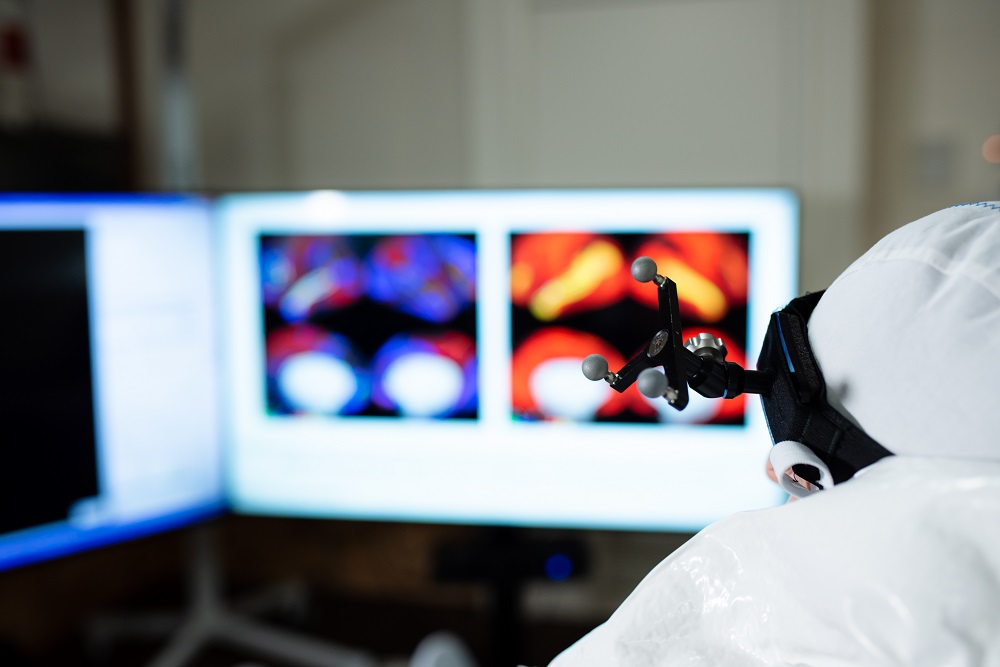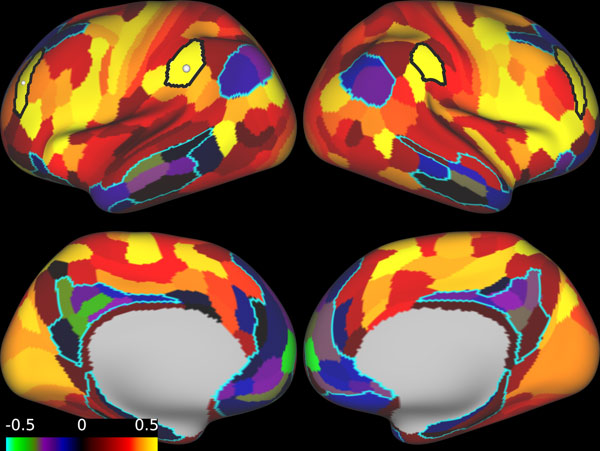
Contact Us

Migraine headaches are more than just a painful inconvenience. They are a complex neurological condition that can significantly impact quality of life.
For many individuals, traditional medications offer limited relief or cause unwanted side effects.
At Neurotherapeutix, we offer a different path forward: personalized migraine headache treatment using fMRI-guided transcranial magnetic stimulation (TMS).
If you’re searching for a migraine specialist in NY or looking for long-term, non-invasive solutions, we’re here to help.
Contact us or continue reading to learn how our advanced TMS therapy targets the neurological source of migraines for lasting relief.
A migraine headache is a recurring neurological condition characterized by severe head pain, often accompanied by nausea, sensitivity to light and sound, and visual disturbances.
Unlike regular headaches, migraines may last for hours or days and typically involve one side of the head (unilateral), though they can also present bilaterally.
Migraines are estimated to affect over 1 billion people worldwide, making them one of the most disabling conditions globally.
Despite their prevalence, progress in migraine diagnosis and treatment has been limited, primarily due to an incomplete understanding of the condition’s underlying brain mechanisms.
People often describe migraines as:
The intensity and duration vary by individual, but the effects can interfere with daily functioning, work, and social life. If these symptoms are becoming a regular part of your life, it may be time to seek expert care and support.
While symptoms vary, common signs of a migraine include:
Some people experience warning signs (prodrome) up to 24 hours before, such as food cravings, fatigue, or irritability.
There are several types of migraine headaches, including:
Understanding your migraine type is key to developing an effective treatment plan.
The exact cause of migraine headaches is still being studied, but key contributors include:
Functional brain imaging has revealed abnormal connectivity in key regions of the brain involved in migraine generation, offering insight into how targeted therapies like TMS can help.
At Neurotherapeutix, we use resting-state functional MRI (rsfMRI) to visualize and measure how different brain regions communicate.
Research has shown that patients with migraines often have disrupted connectivity within the default mode network (DMN) and visual processing areas like V3/V3A.
Through rsfMRI, we can:
This medical service approach allows us to address the neurological root of migraine, not just the symptoms.


Transcranial magnetic stimulation is a non-invasive neuromodulation therapy that uses magnetic pulses to stimulate specific brain areas.
At Neurotherapeutix, we combine TMS with fMRI data to create a personalized treatment plan for each patient.
Key benefits of our approach:
Unlike standard TMS, our protocol leverages leading-edge neuroscience and precision imaging to deliver treatment where it is most needed.
Our treatment process begins with detailed brain mapping to identify the cortical regions involved in your migraine symptoms. Areas we commonly analyze include:
Understanding these networks allows us to fine-tune treatment to reduce attack frequency, severity, and duration.
If you’ve tried medications without relief or want to explore innovative, non-invasive migraine solutions, Neurotherapeutix offers personalized migraine treatment in NYC guided by the most advanced brain imaging available.
We work with:
Our fMRI-guided TMS therapy is safe, effective, and administered by a team of experts at our Upper East Side clinic.
Neurotherapeutix is the pioneer in functional brain mapping and TMS treatment for neurological and neuropsychiatric conditions, including migraine headaches.
If you or someone you love struggles with migraines, we invite you to explore a science-driven solution tailored to your brain’s unique needs.
Request an appointment or contact us to begin your evaluation.

Call us at (917) 388-3090 or click to request a regular or telehealth appointment.
Neurotherapeutix
171 East 74th Street, Unit 1-1 New York, NY 10021

Neurotherapeutix is the leading clinic for functional imaging guided transcranial magnetic stimulation (TMS), a safe, innovative, and non-invasive methodology for treating a wide range of acute and chronic mental disorders and brain injuries. Our advanced fMRI technology allows us to map the brain for the… Learn More »
By: Neurotherapeutix NYC
Reviewed By: Marta Moreno, Ph.D
Published: March 24, 2023
Last Reviewed: September 27, 2024
QUICK INQUIRY
Contact us to get an estimate for your medical services requirements. You can fill in the form to specify your medical requirements or you can call us directly.